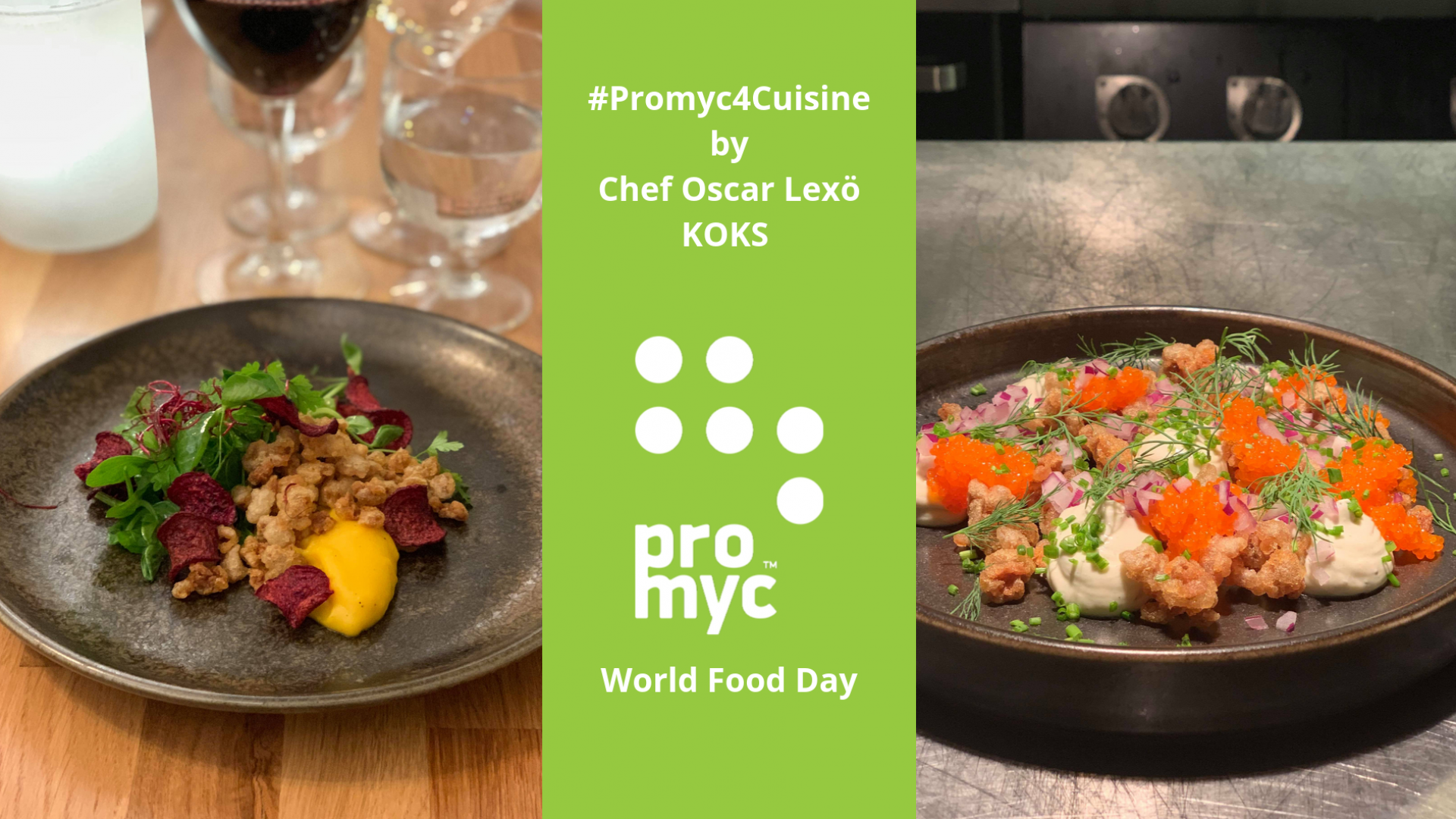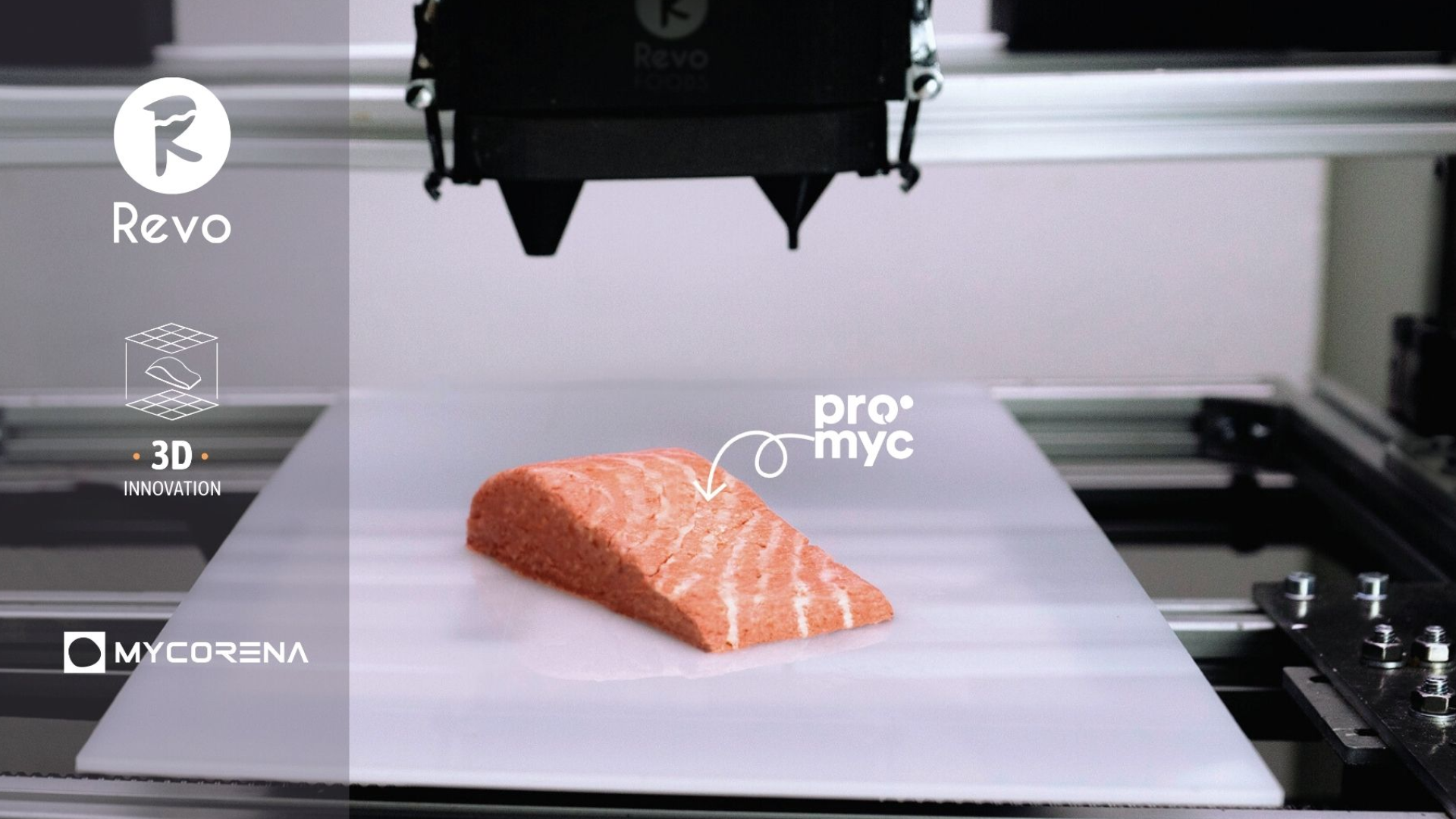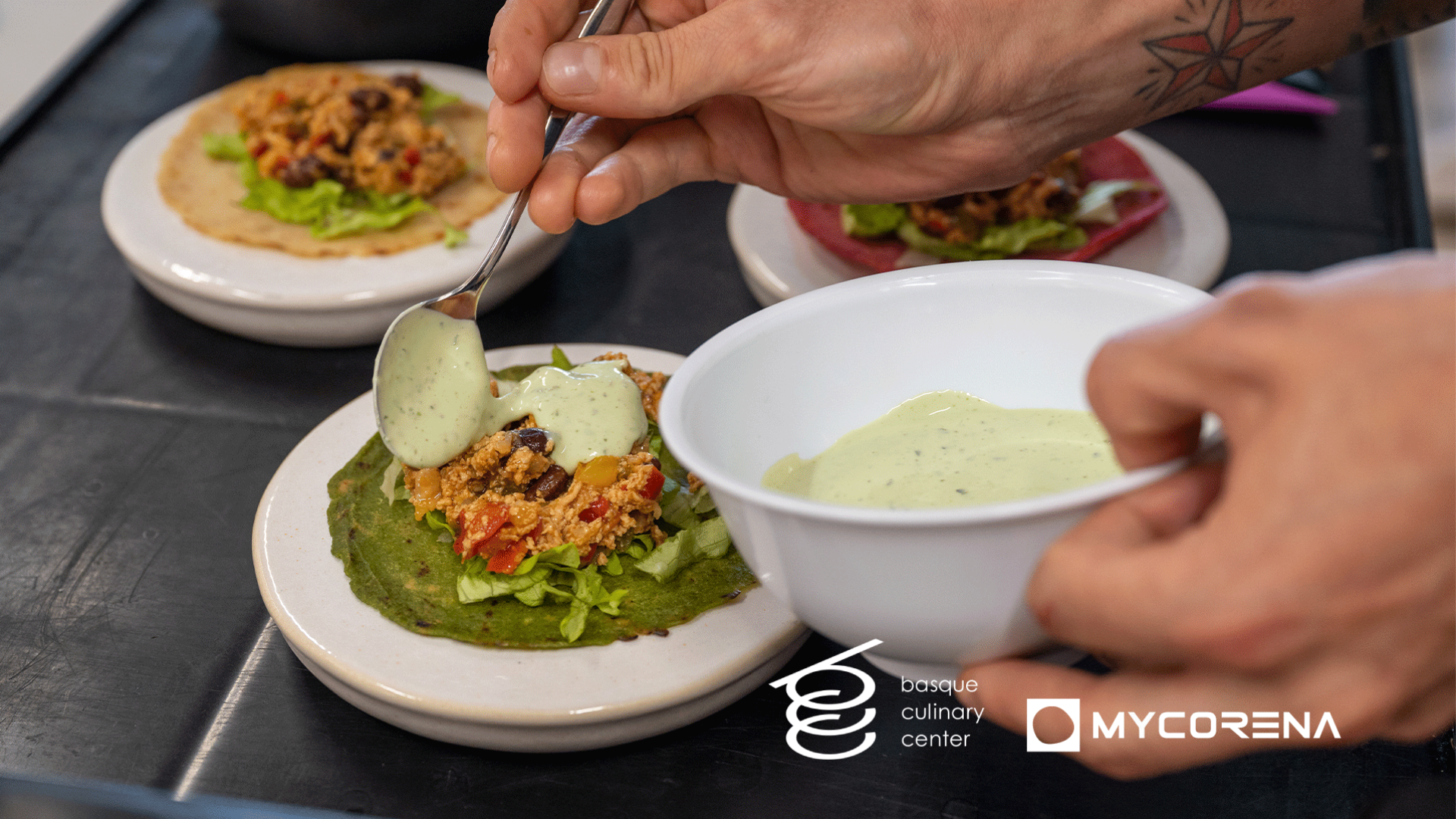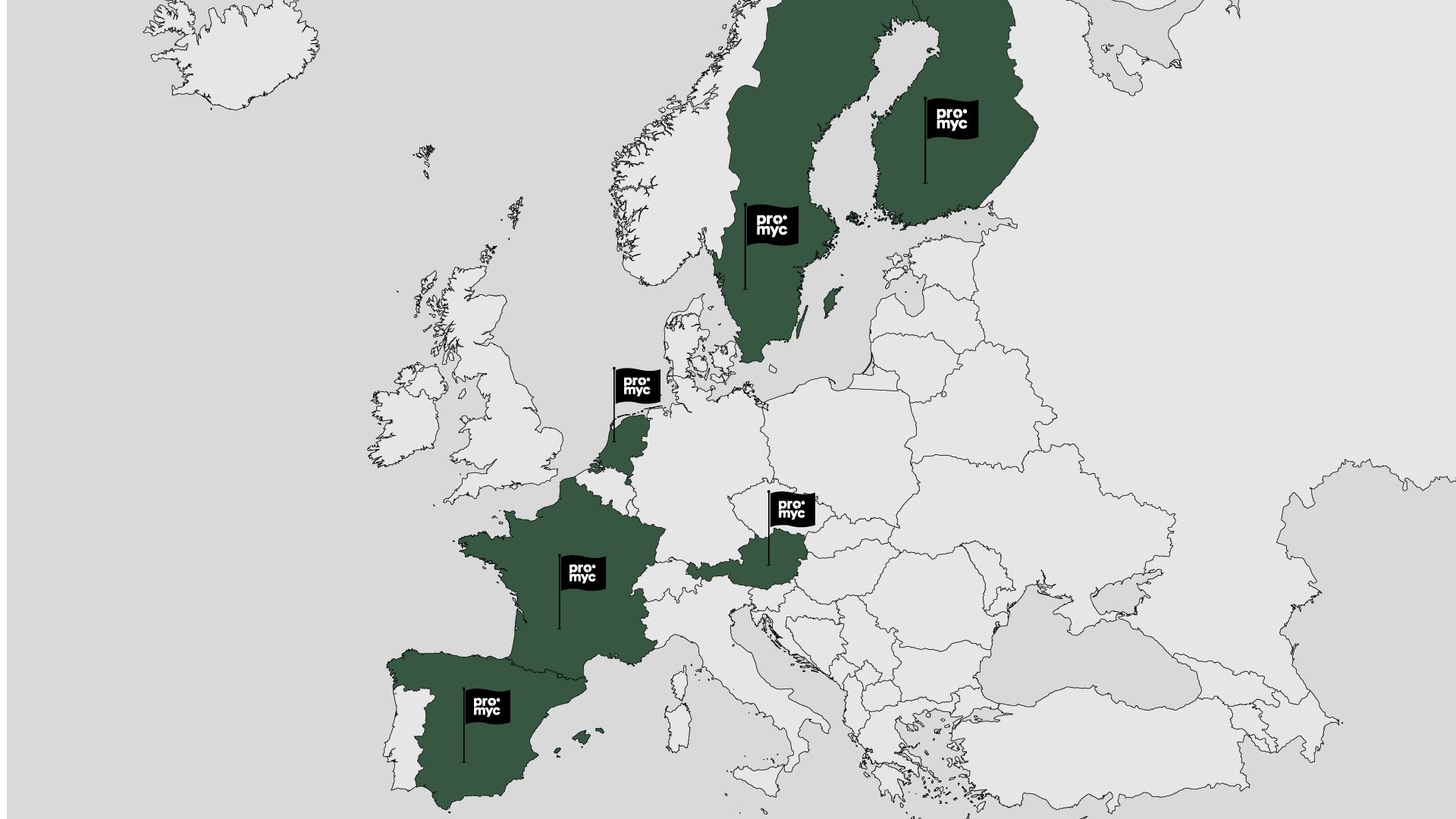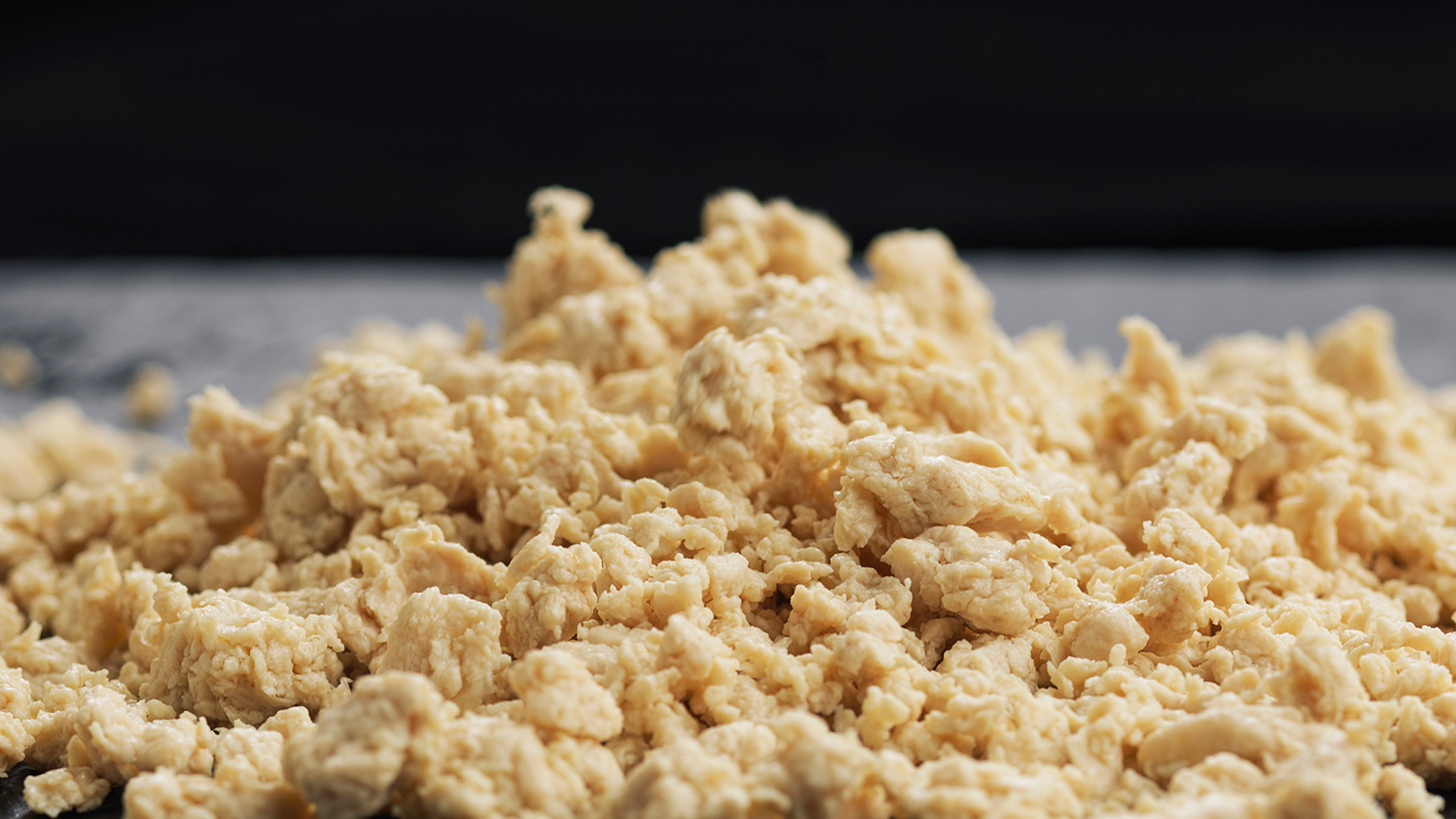Since the foundation of the World Food Day in 1981, topics ranging from Rural Youth to Agricultural Cooperatives and Women in Agriculture have been promoted through the initiative. This year, the focus of World Food Day is all about making healthy and sustainable diets affordable and accessible to everyone. As a pioneer in the development of nutritious and climate-friendly alternative proteins, Mycorena is a proud supporter of the initiatives behind World Food Day, and calls for more innovators and organizations to join the sustainable protein revolution.
The Problem
Enabling universal access to healthy and sustainable food is a goal that is as ambitious as it is well-needed. Did you know that in the past 5 years, the prevalence of starvation and other forms of undernourishment has increased globally? More than 800 million people currently do not have enough to eat, and 1 in 5 children under the age of 5 suffer from stunted growth due to poor diets. Simultaneously, obesity and other lifestyle-related diseases are increasing sharply across all regions and age groups, with an estimated 40% of the global population being overweight. While it is no easy task to disentangle the different factors at play, a few circumstances stand out as key drivers of these developments:
Climate Change and Biodiversity Loss
As part of accelerating industrialization, aggregate food supply is shifting from being diverse and locally produced to being uniform and manufactured in mass scale. Whereas several thousand plant types have historically been used in human consumption, an overwhelming 66% of current global crop production stems from only nine different crops. A less diverse supply of nutritious plant undoubtedly leads to weakened access to all the nutrients required for human health, and biodiversity loss is also strongly linked to climate change, which is another key factor affecting food security.
Climate change has not only been linked to further biodiversity loss in itself, aggravating the issue described above, but also to decreasing nutritional quality of crops. Greater levels of atmospheric CO2 has been proven to negatively affect the protein content of many important crops. Since plants are still the most important source of dietary protein for a majority of the global population, this is a serious issue that has large negative consequences for our ability of ensuring access to healthy and sustainable food for all.
Unhealthy Diets, Sedentary Lifestyles
Due to globalization, urbanization and income growth, we are seeing rapid shifts in the way food is both produced and consumed. Rather than adhering to the traditional human diet consisting of foods that are high in fiber, protein and healthy fats, an increasing portion of the daily energy intake is filled by refined starches, sugar, salt, and processed foods. Combined with the highly sedentary lifestyle of developed nations, we have a very precise recipe for obesity and other lifestyle-related diseases.
The Road to A Solution
To solve the problems described above, and to meet the goals of this year’s World Food Day, significant changes need to be made to how food is both produced and consumed. On the supply side, solutions that increase aggregate food output at neutral or positive climate impact are developed, promoted and invested in. Furthermore, production systems need to be able to provide consumers with healthy and sustainable foods that can be made affordable even for the poorest. On the demand side, consumers need to be made aware of, incentivized to and given proper access to foods that promote rather than impede good health. This will require significant effort from all stakeholders in the global value chains for food, including not only the manufacturers but also distributors, retailers, industry organizations, policymakers, and others.
Mycorena’s Contribution
A significant portion of the world’s population suffers from starvation and malnutrition. We find this alarming. Simultaneously, one-third of all produced food turns into waste. We find this outrageous. With a pioneering solution, Mycorena seeks to solve this problem once and for all, thus contributing to the ambitious goals of this year’s World Food Day. Using the power of biotechnology, we transform waste and side streams from global food industries to a nutritious and sustainable form of fungi-based protein for food and feed applications. With our inclusive circular economy model, we not only contribute to increased resource efficiency and decreased climate impact, but also to augment the aggregate supply of safe and nutritious food for all.
To make healthy and sustainable foods affordable and accessible to everyone
This sentence has a lot to chew, so let’s break it down into its four main parts of what we want for food to be: Healthy, Sustainable, Affordable and Accessible.
Healthy
Consumption of Promyc™ mycoprotein is associated with a range of benefits to human health. First, it has an excellent macronutrient profile with not only 60% protein, but also carbohydrates as well as fat. Our product, therefore, not only helps meet the increasing global demand for dietary protein but also provides the macronutrients that are necessary for maintaining an active lifestyle. Second, Promyc™ is very rich in fibres. This quality is unique to fungi in the space for alternative proteins, which has been closely associated with beneficial health effects such as lowered LDL cholesterol and improved blood sugar control. Third, the product provides essential micronutrients in the form of vitamins and minerals that play an important role in increasing the health and well-being of consumers. Finally, it is highly nutritionally complete and contains all of the amino acids that are essential to human health.
Sustainable
Our solution contributes to increased sustainability in the food industry in various ways. Since our fermentation process is very close to being CO2-neutral, the process of upcycling waste into protein increases food production without creating significant additional emissions of greenhouse gases. Furthermore, our solution is enormously resource efficient. To produce Promyc™ protein, only a small fraction of the water and land used to make an equivalent amount of other protein sources is used.

Affordable
Traditionally, a key challenge in producing foods that are both healthy and sustainable has been cost competitiveness. In a world where foods that perform comparably worse on health and sustainability parameters are produced and sold for dimes on the dollar, novel solutions have faced high entry barriers and markets where incumbents have built wide moats around them. With recent developments in biotechnology and significant innovation in business modelling, this is beginning to change. Because we are using cheap and abundantly available food waste as our process’ main ingredient, Promyc™ can be produced at a very low cost, which is crucial for ensuring universal consumer access.
Accessible
For as long as we can remember, food production has been naturally limited in its scope by the availability of raw materials. Historically, people have consumed what they can produce locally. Because of the challenges to biodiversity and climate change described above, this model has been put to its ultimate test in recent decades. Technological development is now beginning to reverse the trend. Since our solution works with a wide variety of substrates and can be implemented anywhere in the world, the model exhibits excellent scalability and can be implemented where it is needed the very most.
World Food Day 2019: A Hallmark for Promyc
For World Food Day 2019, our sustainable mycoprotein, Promyc, is breaking a new wall. The day marks the beginning of the #Promyc4Cuisine initiative, where we engage local and global chefs in cooking activities using Promyc mycoprotein. The initiative aims to promote sustainable eating by delivering common dishes associated with meat, made with a replacement that so much looks like it.
For the first iteration of #Promyc4Cuisine, we engaged Chef. Oscar Lexö from the local Göteborg restaurant KOKS. He executed two different dishes with elements of Swedish cuisine, bringing Promyc into the spotlight and showcasing ways to cook our novel and nutritious food ingredient. We look forward to continuing this campaign as part of a global effort to bring more sustainable protein sources to everyone.
Authors:
Anton Johansson
Business Developer at Mycorena
Paulo Teixeira
Communications Manager at Mycorena
